|
|
|
[2012/This_year_school/Lecturers2012/Lecturer_individual2012/Lecturer_Fluckiger_with_bio-print.htm] |
| |
|
[2012/This_year_school/Lecturers2012/Lecturer_individual2012/Lecturer_Jacobsen_with_bio-print.htm] |
| |
|
[2012/This_year_school/Lecturers2012/Lecturer_individual2012/Lecturer_Jarp_with_bio-print.htm] |
| |
| Sebastian
Lopienski |
CERN |
|
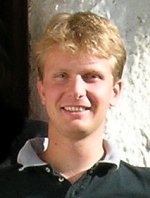 |
Sebastian Lopienski is CERN’s deputy Computer Security Officer. He works on
security strategy and policies; offers internal consultancy and audit
services; develops and maintains security tools for vulnerability assessment
and intrusion detection; provides training and awareness raising; and does
incident investigation and response. During his work at CERN since 2001,
Sebastian has had various assignments, including designing and developing
software to manage and support services hosted in the CERN Computer Centre;
providing Central CVS Service for software projects at CERN; and development
of applications for accelerator controls in Java. He graduated from the
University of Warsaw (MSc in Computer Science) in 2002, and earned an MBA
degree at the Enterprise Administration Institute in Aix-en-Provence in
2010. His professional interests include software and network security,
distributed systems, and
Web and mobile technologies.
|
|
| |
|
Pere
Mato Vila |
CERN |
|
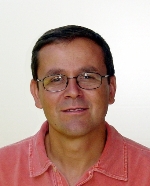 |
Pere Mato studied physics at University of
Barcelona, Spain, where he obtained the Ph.D. in 1990. Since 1986
has been working at CERN in a number of projects. Started with the
3081/E emulator project at the DD division, and later moved to the
Aleph experiment in the area of DAQ and slow controls. In 1994 he
took the overall responsibility of the Aleph TPC detector until the
end of LEP. From 1998 he led the development of the core software
and framework for the LHCb experiment (Gaudi). In 2005 has been
appointed Applications Area manager of the LCG project,
and later he has been leading the Software Development for
Experiments (SFT) group in the Physics department.
|
|
| |
|
Andrzej Nowak |
CERN |
|
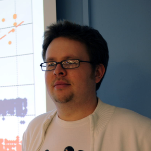 |
Andrzej Nowak is a staff researcher at CERN openlab - a
collaboration of CERN and industrial partners such as HP, Intel, Oracle and
Siemens. He holds a Master Engineer degree in Computer Science from the
Gdansk University of Technology, specializing in distributed applications
and internet systems. Andrzej's early research concerned operating systems
security, mobile systems security, and wireless technologies. During his
studies in 2005 and 2006, he worked at Intel, where he researched custom
performance optimizations of the Linux kernel and took part in developing
one of the first implementations of the IEEE 802.16 "WiMax Mobile" standard.
In January 2007, soon after obtaining his diploma, he joined openlab as a
Marie Curie Fellow sponsored by the European Commission. Andrzej's current
research is focused on performance tuning, parallelism and modern many-core
processor architectures. Another significant area of his work is the
teaching of these topics at courses both within and outside of CERN.
|
|
| |
|
[2012/This_year_school/Lecturers2012/Lecturer_individual2012/Lecturer_Pace/Lecturer_Pace_with_bio-print.htm] |
| |
|
Ivica Puljak |
University of Split - Croatia |
|
%20(2).jpg) |
Ivica Puljak is Professor of physics at University of Split, Faculty
of Electrical Engineering, Mechanical Enginnering and Naval
Arhitecture (FESB). He completed his BsC studies in electrical
engineering at FESB and MsC studies in particle physics at
University of Zagreb. He has been working for his PhD thesis at
Laboratory Leprince Ringuet (LLR) at Ecole Polytechnique, Palaiseau,
and got his PhD in particle physics from University Paris VI in
2000. In 2011/2012 he was research associate at CERN. He is a member
of CMS collaboration since 1994 and MAGIC collaboration since 2009.
His research interests are construction of the electromagnetic
calorimeter of the CMS detector, search for the Higgs boson and
astroparticle physics.
|
|
|
|
|
|
Gjøvik University College - Norway |
|
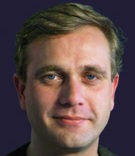 |
Dr. Are
Strandlie received his Master of Science degree in Theoretical Physics in
1995 and his Doctor of Science degree in Experimental Particle Physics in
2000, both from the University of Oslo. He was a Research Fellow at CERN
between 2001 and 2003, where he was working on track reconstruction software
development for the CMS Tracker. Strandlie held a position as Associate
Professor of Physics at Gjøvik University College between 2003 and 2006, and
is currently Professor of Physics at the same institution. He also holds a
position as Adjunct Professor at the Department of Physics, University of
Oslo. He is now involved in the ATLAS experiment at CERN. Strandlie's
research interests are concentrated around various aspects of the analysis
of high-energy physics data, including the development and application of
adaptive methods for track reconstruction and probabilistic approaches to
particle mass determination.
|
|
|
|
| Benjamin
Radburn-Smith |
University of Manchester
&
STFC Rutherford Appleton Laboratory, U.K. |
|
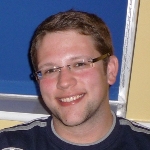 |
Benjamin
Radburn-Smith is a final year PhD student with the University of
Manchester’s Particle Physics Group and the STFC Rutherford Appleton
Laboratory’s Particle Physics Department, where he is based. He joined the
RAL CMS group and has been a member of the experiment since 2009. For his
research, Benjamin is studying multivariate visualisation techniques which
can be used in conjunction with a physics analysis. The visualisations of
most interest include parallel coordinates and the grand tour. He is
interested in physics beyond the Standard Model and works within the CMS
Exotica group. He is currently investigating collimated groups of leptons
called Lepton Jets, which are possible signatures of new physics.
|
|
|
|
|
Assistant to Lecturer
Biographie 2012 |
|
|
| Giuseppe Lo
Presti |
CERN |
|
 |
Giuseppe Lo Presti studied Computer Science Engineering in Palermo. He
joined CERN in 2004 to complete his PhD studies with a Thesis on
Peer-to-peer technologies for Data Acquisition systems in the CMS
Experiment. As a post-doc INFN fellow he then joined the CERN IT Department,
where he has been one of the major contributors in the software design and
development of the CERN Advanced Storage manager (CASTOR), a Hierarchical
Storage Manager used at CERN for all physics data (tens of Petabytes). He
currently holds a staff position in the Data and Storage Services group,
where he is responsible for the database backend and the Grid Storage
Resource Manager (SRM) interface of the CASTOR system.
|
|
|
|
|
Andreas J. Peters |
CERN |
|
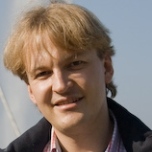 |
Andreas Peters is member of the CERN data management
group. Since 1997 he worked as a student for the NA48 Collaboration at CERN
in the development of the data acquisition system and a zero suppression
system for the electro-magnetic calorimeter. He finished his PHD in physics
at the University of Mainz in 2002 studying direct CP-violation in the
neutral kaon system. 2002 he joined as a research fellow the ALICE
experiment doing mainly development of GRID software and data management
tools. From 2004 on he stayed at CERN working for the European grid project
EGEE focused on development of end-user tools for distributed analysis and
distributed data management. In 2008 he joined the CERN data management
group doing research and development for future data management at CERN.
|
|
|
|





%20(2).jpg)



